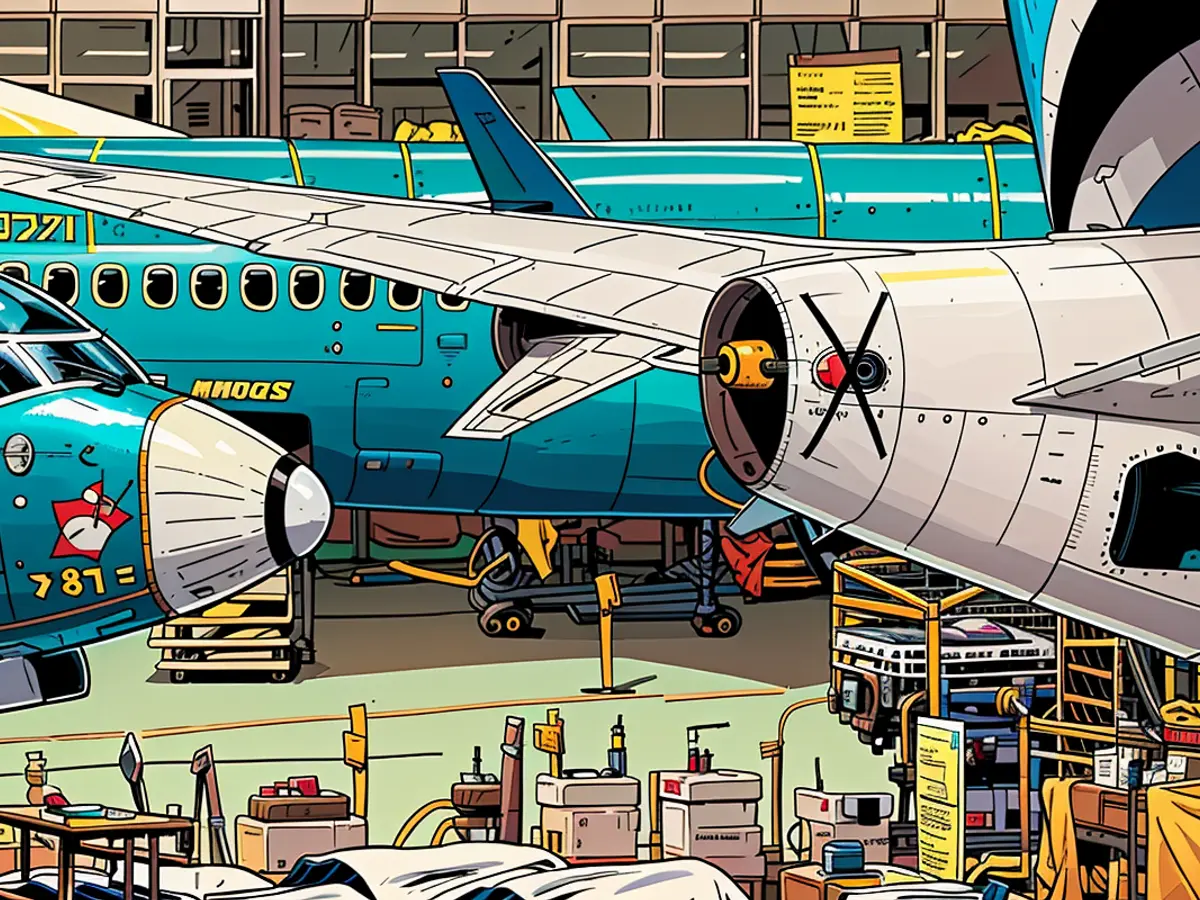The judge is meticulously examining the proposed settlement between Boeing and will soon announce a verdict in the case.
A federal judge pressed DOJ officials on Friday to explain the conditions of Boeing's deal to confess to deceit after two fatal 737 Max crashes, yet chose not to rule immediately on whether to approve the arrangement.
Lawyers for Boeing and federal prosecutors made their cases before U.S. District Judge Reed O'Connor in Fort Worth, Texas, with the former advocating for the acceptance of the plea agreement, and the latter for its rejection. Boeing admitted in July to conspiring to mislead regulators.
Judge O'Connor stated he would deliver a ruling swiftly.
Over the past few weeks, Judge O’Connor has reviewed numerous legal briefs submitted by both sides. In court on Friday, Paul Cassell, a lawyer for the families of the 346 individuals who perished in the crashes, which occurred in 2018 and 2019, cited "eight reasons to turn down this rotten plea deal."
The reasons included his argument that the agreement permitted a well-off corporation to dictate its penalties prior to sentencing, and that it failed to adequately hold Boeing or its executives accountable for the deaths of the families' loved ones.
Sean Tonolli, the Justice Department’s senior deputy chief of the criminal division’s fraud section, defended the agreement as "fair and just," and claimed that the government had modified its approach to the plea agreement to address issues raised by the families.
Prosecutors argued that they arrived at the plea agreement following a thorough investigation and several meetings with the families.
In an August court filing, prosecutors stated, "However, Justice Department officials have thus far failed to discover the one thing that underlies the families’ most vehement objections to the proposed resolution: evidence that could prove, beyond a reasonable doubt, that Boeing’s deceit caused the deaths of their loved ones."
Boeing "regrets the inexpressible losses endured by the families," Mark Filip, a lawyer representing Boeing, told the judge. He urged the judge to accept the plea agreement. The company asserted in a previous court filing that it was "prepared to confess and thereby accept responsibility for the crime" of conspiring to mislead regulators. The aircraft manufacturer maintained that it had drastically enhanced and increased investment in its safety and compliance practices.
Plea deal far from the fine families sought
Boeing agreed in July to confess to one charge of deceiving the United States. As per the plea agreement, it would pay up to $487 million in fines—a meager fraction of the $24.8 billion the families of the crash victims wanted the company to pay.
The families argued that the fine amounted to a favorable settlement for Boeing, shielding it from accountability for the two fatal crashes caused by a design flaw on the planes. They also argued that Boeing's profits from each plane it sold could justify a much larger fine than the one the Justice Department claimed it could justify under the plea agreement.
Boeing also agreed to allocate $455 million over the next three years to its compliance and safety programs, which the government said would represent a 75% increase over the company's annual spending on those programs.
However, the most significant change under the plea agreement was Boeing's agreement to operate under the supervision of a court-appointed monitor for a period of three years to ensure it enhanced the quality and safety of its aircraft.
The plea deal represented another setback for the company after a series of problems, some embarrassing and others tragic, over the past six years. It was a severe blow to Boeing's reputation, a company once renowned for the quality and safety of its commercial planes.
Beyond the fatal crashes of the 737 Max jets, the company has faced numerous safety and quality concerns. In January, a door latch on a 737 Max flown by Alaska Airlines broke off early in a flight, creating a sizable hole in the side of the jet and further damaging Boeing's reputation.
The Justice Department argued that the penalties Boeing agreed to were the most severe available. It also claimed that it achieved other improvements, including oversight from a monitor and increased safety and compliance spending when manufacturing aircraft.
According to the charges, the company misled the Federal Aviation Administration during the process of certifying the 737 Max to carry its first passengers. The plane began service in 2017, but the two fatal crashes resulted in a 20-month grounding of the jets. Investigations revealed a fault in the autopilot system's design. Boeing admitted responsibility for the fatal crashes and acknowledged that its employees concealed information about the design flaw from the FAA during certification.
In January 2021, the federal prosecutors and Boeing reached an agreement to settle criminal charges and defer any prosecution on the matter. During a three-year probationary period that followed, Boeing agreed to improve its quality issues and work more transparently with the government.
However, the Alaska Airlines incident occurred only days before the probationary period was due to expire, leading to numerous federal investigations into its practices and opening the door for this prosecution under the original agreement.
The families of the crash victims expressed their dissatisfaction with the plea agreement, arguing that it allows Boeing to dictate its penalties and does not hold the company or its executives sufficiently accountable for the deaths. Despite Boeing's admission to conspiring to deceive regulators and agreeing to pay up to $487 million in fines, this amount fell short of the $24.8 billion the families sought, branding it as a favorable settlement for Boeing.








